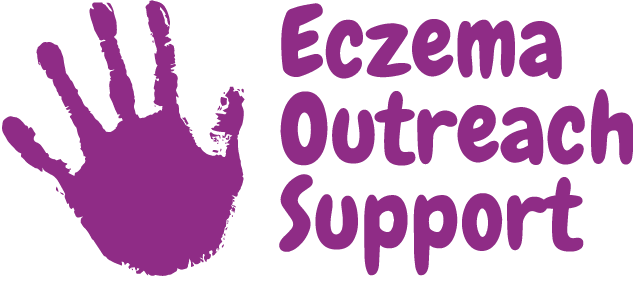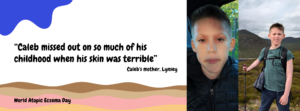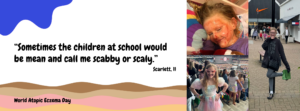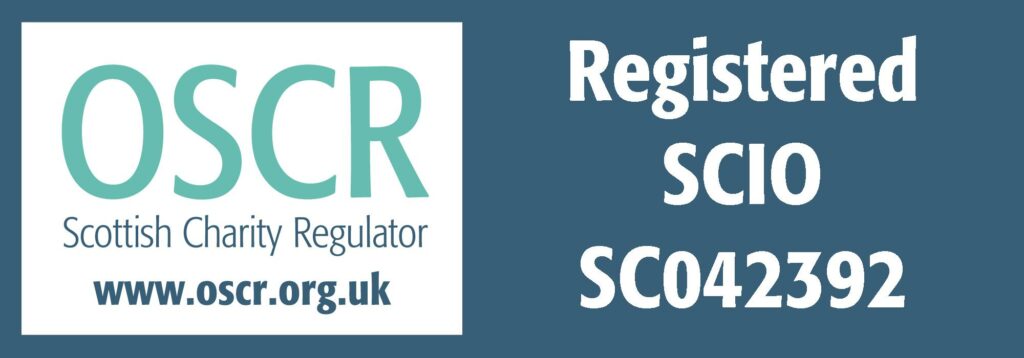As well as the physical symptoms that eczema causes like being itchy and painful, it can have an impact on lots of other parts of your life. Living with the symptoms of eczema, and having to work hard to manage it, can affect how you feel, what you do, and relationships with other people. For example, eczema can cause low mood, anxiety, appearance worries, and sleep issues, to name a few.
Mental health can be affected and the way you look may make you want to avoid family and friends and even stop hobbies like swimming and gymnastics.
The good news is that there are lots of things that have been shown to help people cope with the challenges that come from having eczema.
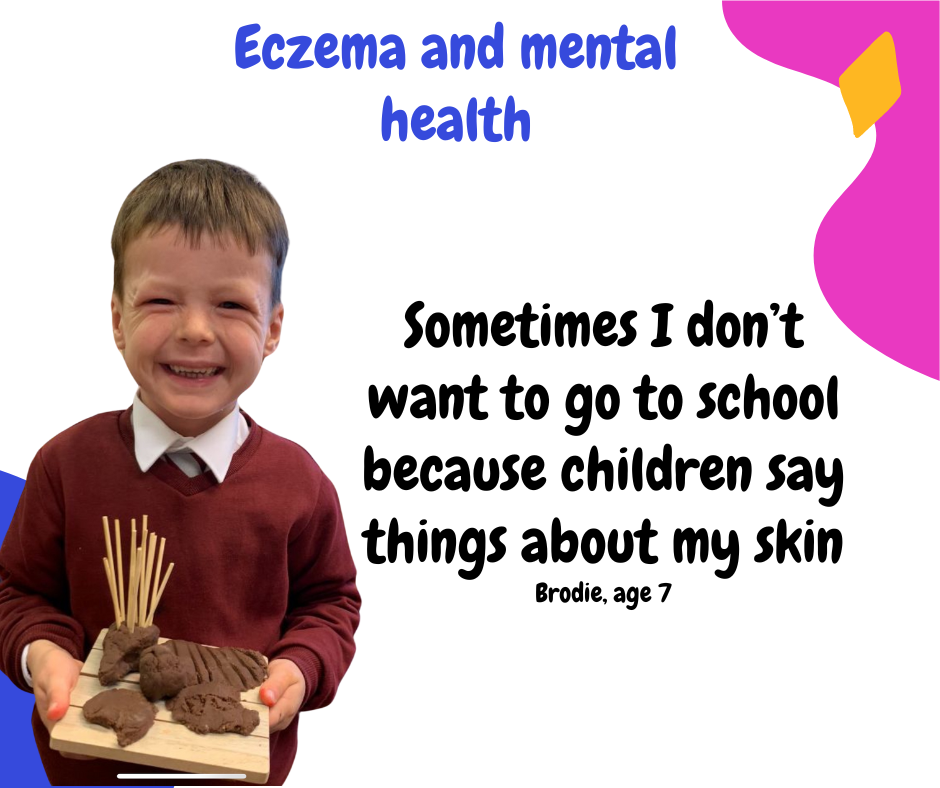
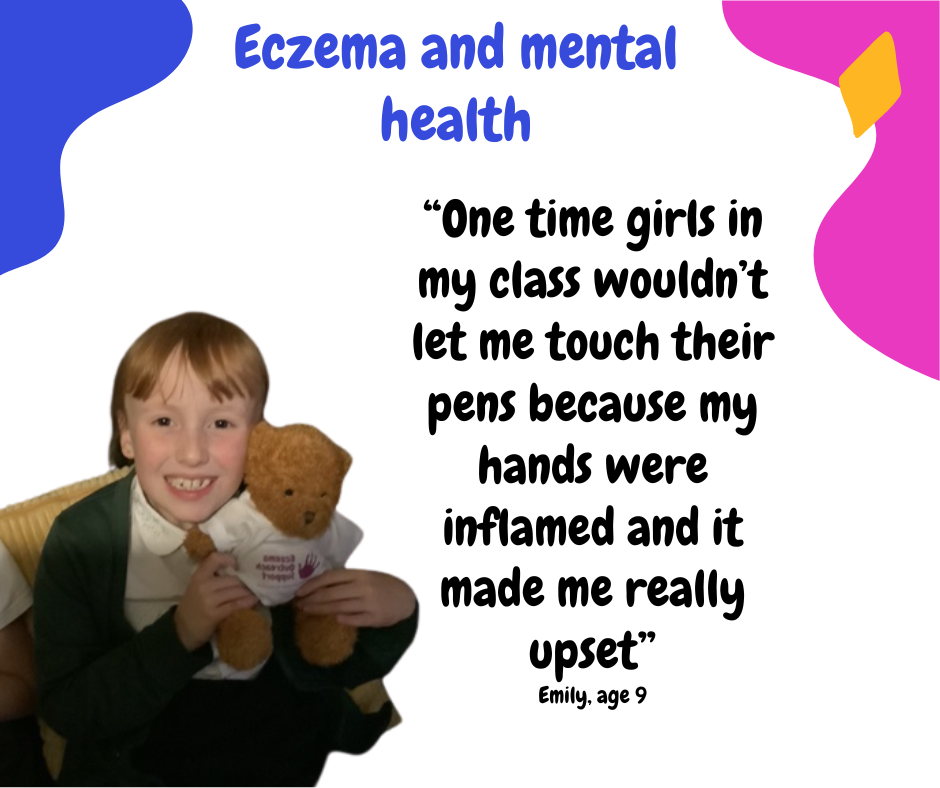
Our well being resources
EOS have created a resource to help build confidence and deal with worries and anxiety.
Our well being resources were made by Dr Ella Guest, a Senior Research Fellow and Chartered Psychologist based at the Centre for Appearance Research (CAR) at the University of the West of England (UWE) in Bristol.
They include videos about the impact eczema can have on different aspects of our lives and worksheets that help you develop skills to cope with the challenges children and young people with eczema can face.
Silvia, a member of EOS Youth Panel shares her story about eczema and the toll it had on her mental health
Dealing with eczema as a young person can have a huge impact on mental health.
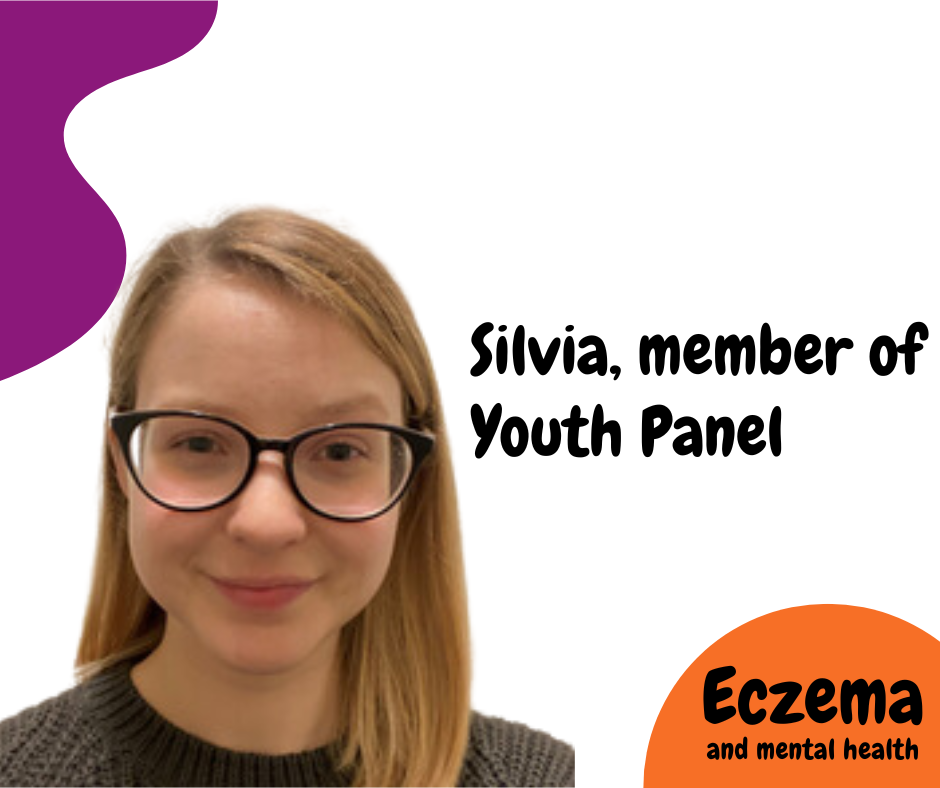

Eventually Silvia was referred to a dermatologist who also told her about EOS. She was too old by this point to become a member but she went to an event and later was a founding member of the youth panel.
Silvia’s top tips for parents and carers to help the mental health of their child.
Do’s
Dont’s
Members of EOS shared how eczema affectes their mental health as part of World Eczema Day 2024
Ishani and Leeya’s story – Eczema – it gets under your skin
World Eczema Day is September 14th and raises awareness of
Caleb’s story – Eczema – it gets under your skin
A boy from Ballyclare with eczema so severe his skin
Scarlett’s story – Eczema – it gets under your skin
World Eczema Day is September 14th and raises awareness of
If your child is struggling with their appearance, Changing Faces can help.
 They are a UK charity for people with a visible difference on their face, hands or body and offer support including counselling. Their services can be accessed here.
They are a UK charity for people with a visible difference on their face, hands or body and offer support including counselling. Their services can be accessed here.
